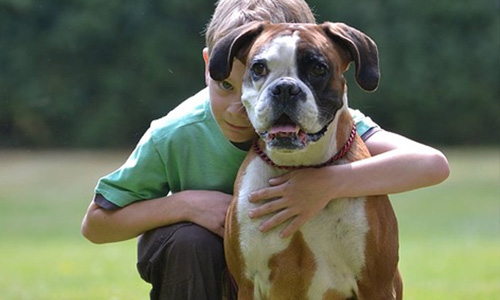
Occasionally when you are down, all it requires is a lick on the face along with a furry friend cuddle to lift your own spirits. However, what if your anxiety runs deep, in case you are anxious and anxious to leave the home, and wind up depressed or even suicidal–may a puppy nevertheless help bring you again?
There are lots of tales about how puppies have helped people with melancholy; Julie Barton’s poignant memoir Dog Medicine is one of the best-known. What is fascinating is that formal study also demonstrates that companion and service animals are good at treating depression and stress, in addition to enhancing general wellness.
It is possible to train a puppy for support certificate without going through a company, even though it requires a whole lot of work. A well-reviewed manual similar to this one is a great starting place. Additionally, certain strains are more commonly used for support work, but a lot of distinct strains can make fantastic therapy animals. Not confident of a puppy’s breed faces? Dog DNA tests can provide invaluable insight. This evaluation receives high marks for accuracy.

The Way Service Dogs Help Individuals with Stress and Depression
Often times, people that have anxiety or depression avoid contact with the external world, either from fear or anxiety of what may occur.
“Stress and depression involve psychological turmoil and negative inner ‘self-talk,'” Dr. Katie Kangas, co-founder of this Pet Wellness Academy, clarifies. “These ideas typically spiral to unrealistic negativity and this proceeds at a vicious cycle.”
Dogs help break this cycle by giving soothing companionship and a sense of purpose for their owners.
Dr. Kangas and Accredited Behaviorist Colleen Demling weigh in on some of the additional ways dogs can assist those suffering from depression:
Duty for their well-being. “A puppy has to be fed up, has to be walked, and should be pet, so sometimes when someone feels least inspired, a thump of a happy tail motivates an individual to contact alive,” Demling states.
Unconditional love. “This 100% approval without ruling when a man has been depressed, stressed, lonely, wearing the very same clothes as yesterday and can not get out of bed helps individuals feel as though they have a genuine friend during their issues,” Demling states.
Recognize indications of a panic attack. “The mere existence or non-reaction into a stimulation of a trustworthy companion frequently calms an assault,” Demling describes. “Dogs may also be trained to utilize passive techniques to prevent strangers from coming to their handler unexpectedly.”
Remaining connected. “In the modern society, together with the progress of technology and internet link, we’re losing actual social connection, and that’s leading to more psychological problems and disorders,” Dr. Kangas clarifies. “Love and link will not exist in the Earth, and creatures are a wonderful source to obtain this inside one’s life.”
In reality, dogs are proven so good at helping fight anxiety, anxiety, and depression.
About VuCare Assistance Dogs
VuCare runs as a not for profit organization that offers support with medical aids and has a goal to train Assistance Dogs and Companion Dogs to enhance the quality of life and increases the degree of freedom for people who have handicaps. VuCare Assistance Dogs and Company Dogs provide their new owners greater autonomy increased freedom, enhanced trust, and greater self-esteem.
To learn more phone us on 1300 830 166 or email us at info@vucare.com.au. Visit VuCare Assistance Dogs Australia site at http://vucare.com.au.



















